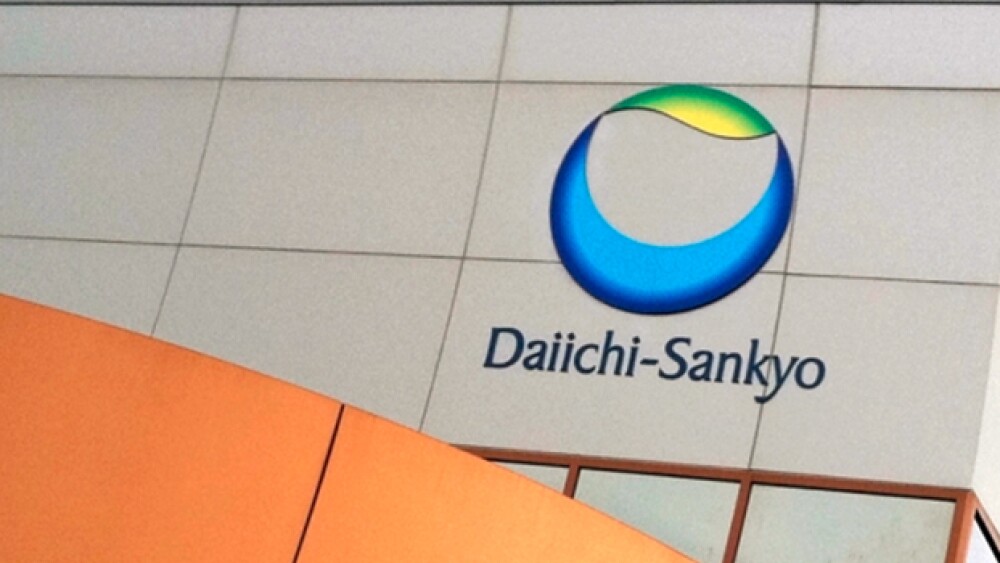Daiichi Sankyo announced that its Phase III ENLIVEN trial of pexidartinib met its primary endpoint.
Daiichi Sankyo Company announced that its Phase III ENLIVEN trial of pexidartinib met its primary endpoint.
Pexidartinib is a CSF1R inhibitor. It was being evaluated in patients with symptomatic tenosynovial giant cell tumor (TGCT) where surgical resection is potentially associated with worsening functional limitation or severe morbidity. The study’s primary endpoint was tumor response as measured by tumor size reduction.
Pexidartinib is being jointly developed by Daiichi Sankyo and Plexxikon, a member of the Daiichi Sankyo Group. The drug selectively inhibits the receptors tyrosine kinase of CSF-1R/Kit/Fit3-ITD.
Tenosynovial giant cell tumor is a rare and usually non-metastatic tumor that affects the synovium-lined joints, bursae and tendon sheaths. TGCT is a group of cancers that include pigmented villonodular synovitis (PVNS) and giant cell tumors of the tendon sheath (GCT-TS). The U.S. Food and Drug Administration (FDA) has granted the drug Orphan Drug Designation and Breakthrough Therapy Designation for TGCT. The European Medicines Agency (EMA) also granted it Orphan Drug Designation for the same indication.
The company also announced today that its board of directors approved a resolution to buy its own shares. The total number it will potentially buy is 28,000,000, which is 4.2 percent of issued shares, excluding treasury shares. The aggregate amount of the acquisition is 50 billion yen ($440.74 million, US), and will be purchased on the Tokyo Stock Exchange.
Yesterday, Daiichi Sankyo announced it had signed an option deal for future strategic collaboration and licensing with Glycotope GmbH, based in Berlin, Germany. The two companies will work to develop an antibody drug conjugate (ADC) using Daiichi Sankyo’s proprietary ADC technology with Glycotope’s tumor-associated TA-MUC1 antibody PankoMab-GEX.
A feasibility study will be conducted, then Daiichi Sankyo has the option to exercise worldwide rights to develop and commercialize PankoMab-GEX ADC. If it decides to do so, it will pay Glycotope an upfront fee as well as development and sales milestones payments and royalties. Financial details weren’t disclosed.
“This strategic partnership is part of our overall strategy to maximize the potential of our ADC technology by seeking partnerships where our proprietary linker and payload as well as our unique protein engineering capabilities can be applied to new antibodies and targets,” said Tom Held, vice president, global head, Antibody Drug Conjugate Task Force for Daiichi Sankyo, in a statement. “We look forward to working with Glycotope to combine our scientific expertise to develop a new ADC that can deliver smart chemotherapy to cancer cells.”
ADCs deliver chemotherapy payloads to cancer cells by way of a “linker” that is attached to a monoclonal antibody. The antibody binds to a specific target that is expressed on the surface of the cancer cells. Daiichi Sankyo’s ADC technology is engineered to “deliver enhanced cancer cell destruction upon release inside the cell” while also reducing healthy cells’ exposure to the chemotherapeutic agent.
PankoMab-GEX is an investigational monoclonal antibody that binds to a carbohydrate-induced conformational epitope, the TA-MUC1, which is expressed in many tumor types including ovarian, lung and breast.
“Entering into this agreement with such a renowned partner as Daiichi Sankyo is an important achievement for Glycotope’s core expertise of tumor-targeted monoclonal antibodies,” said Roland Sand, Glycotope’s chairman of the board, in a statement.





